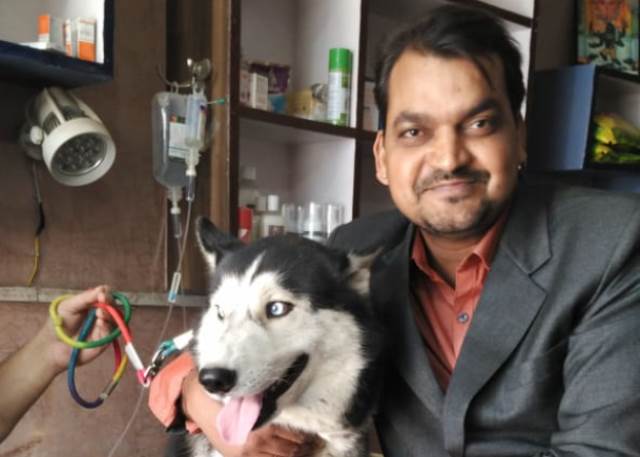Pankaj Bhardwaj, a veterinarian practising in Delhi-NCR, says he sees an increasing number of cases chronic bronchitis and inflammatory airways among pets. His views
Of late, I have been witnessing a distressing trend that transcends the boundaries of all living species – a surge in asthma cases not only among humans but also within the intricate tapestry of our animal and bird communities. The ever-rising pollution levels in the region have cast a gloomy shadow over the respiratory health of our beloved pets and the diverse wildlife that calls this area home.
Delhi NCR, with its myriad of challenges, has become a crucible where the fates of humans and animals intertwine amidst a backdrop of worsening air quality. The metropolis, notorious for its high levels of particulate matter, nitrogen dioxide, and other pollutants, has become a testing ground for the resilience of both domesticated pets and the untamed creatures that navigate the urban wilderness.
For our domestic companions, the confines of our homes, once considered safe havens, now harbor invisible threats. Indoor pollutants, a toxic blend of household cleaners, air fresheners, and volatile organic compounds, join forces with external pollutants seeping in from the polluted outdoors. Dogs, cats, and other pets are experiencing respiratory distress—wheezing, coughing, and struggling for breath.
Dogs, cats, and horses share human-exposed hazards. Indoor carcinogens contribute to lung and nasal cancer in dogs, while passive smoking elevates malignant lymphoma incidence in cats. Urban air pollution heightens risks for dogs with chronic bronchitis and cats with inflammatory airway diseases. It’s heart-wrenching to see animals that once thrived in the comforting embrace of their homes now grappling with the adverse effects of the very air they breathe.
ALSO READ: Humans Must Come Out To Help The Voiceless Animals
Venturing into the city’s green patches reveals a similar narrative in the wild. Birds, with their delicate respiratory systems, are particularly vulnerable to the noxious air that permeates even the most secluded corners. Urbanization, industrial emissions, and vehicular exhaust combine to create a hostile environment for these feathered denizens. Their once melodic songs are now accompanied by the subtle undertones of wheezes—a poignant reminder that even the skies above Delhi NCR are not immune to the consequences of human-induced pollution.
As a veterinarian in this region, each day unfolds as a series of encounters with animals struggling to cope with the invisible adversary—pollution. The clinic becomes a sanctuary for creatures seeking relief from the wheezes in the wind. Pets, often regarded as family members, bring with them symptoms mirroring those of their human counterparts—labored breathing, persistent coughs, and an overall air of discomfort. It’s a stark reminder that the health of our animal companions is intricately linked to the environmental challenges we collectively face.
The impact of pollution on animals in Delhi NCR extends beyond immediate health concerns. Long-term exposure to elevated pollution levels poses a threat to the overall well-being of our pets and wildlife. Chronic respiratory conditions can lead to a diminished quality of life, affecting their ability to play, explore, and express their natural behaviors.
Addressing the rising asthma cases in animals necessitates a holistic approach that transcends the confines of veterinary clinics. Pet owners play a crucial role in mitigating indoor pollution by opting for eco-friendly products, ensuring proper ventilation, and creating safe havens for their pets. On a larger scale, collaborative efforts between veterinarians, environmental agencies, and policymakers are essential to enact measures that curb pollution and safeguard the respiratory health of all inhabitants, human and animal alike.
As a veterinarian navigating this complex landscape, I am committed to advocating for the well-being of our animal companions, urging for a concerted effort to address the root causes of pollution and create an environment where every breath is a testament to a healthier, more harmonious coexistence.
As told to Deepti Sharma
For more details visit us: https://lokmarg.com/
